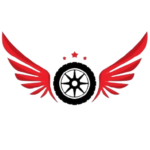
3d Wheel Alignment Machine
A 3D Wheel Alignment Machine is a state-of-the-art diagnostic system designed to deliver high-accuracy wheel alignment using advanced 3D imaging technology. Built for modern workshops, this machine ensures faster, smarter, and more reliable alignment results, helping technicians achieve factory-grade accuracy within minutes.
Key Features
High-Precision 3D Cameras: Uses HD dual or triple camera systems to capture exact wheel angles in real time.
No Calibration Needed Frequently: Stable structure maintains accuracy for long periods, reducing maintenance time.
Fast & User-Friendly Operation: Intuitive software guides technicians step-by-step for quick service.
Four-Wheel Real-Time Measurement: Measures caster, camber, toe, SAI, thrust angle, and more simultaneously.
Wireless Targets (Optional): Lightweight, durable wheel clamps ensure scratch-free mounting.
Large Vehicle Compatibility: Suitable for cars, SUVs, MPVs, and light commercial vehicles.
Advanced Database: Comes with a global OEM-approved vehicle data library for accurate specifications.
